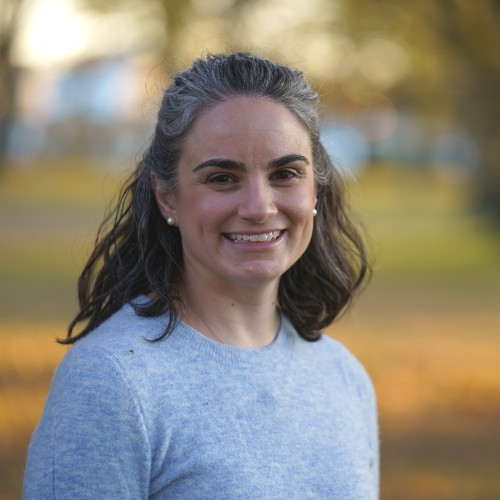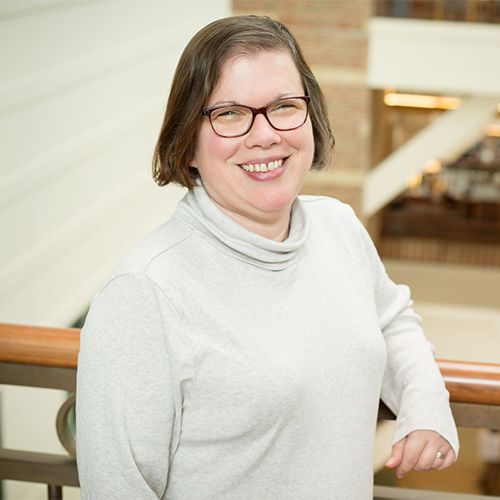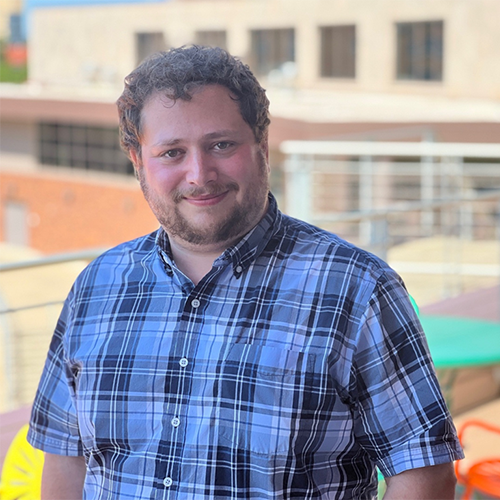Conference Presenters

Hal Daumé III is a Volpi-Cupal endowed Professor of Computer Science and Language Science at the University of Maryland, where he is the Director of AIM, the AI Interdisciplinary Institute at Maryland and of TRAILS, an NSF & NIST-funded institute on Trustworthy AI. His research focus is on developing AI systems that interact naturally with people, promote their self-efficacy, while mitigating societal harms. Together with his students and colleagues, he has received several awards, including six best paper awards, a test of time award, and a best demo award. He has been program co-chair for the International Conference on Machine Learning in 2020 (with Aarti Singh) and for the North American Chapter of the Association for Computational Linguistics in 2013 (with Katrin Kirchhoff), and he was an inaugural diversity and inclusion co-chair at NeurIPS 2018 (with Katherine Heller). When not sciencing and teaching, he spends most of his time climbing, yogaing, cooking, backpacking, skiing, and biking.

David B. Resnik is a Bioethicist at the National Institute of Environmental Health Sciences (NIEHS), National Institutes of Health (NIH) and Senior Advisor for Research Integrity in the NIH’s Office of Intramural Research. Dr. Resnik has an MA and PhD in Philosophy from the University of North Carolina at Chapel Hill, a JD from Concord University School of Law and a BA in Philosophy from Davidson College. He has published over 300 articles and 10 books on ethical, social, legal, and philosophical issues in science, technology, and medicine; is an Associate Editor of the journal Accountability in Research; and a Fellow of the American Association for the Advancement of Science.

Anjana Susarla is the Omura-Saxena Professor of Responsible AI at the Eli Broad College of Business at Michigan State University. She earned an undergraduate degree in Mechanical Engineering from the Indian Institute of Technology, Chennai; a graduate degree in Business Administration from the Indian Institute of Management, Calcutta; and Ph.D. in Information Systems from the University of Texas at Austin. Her work has appeared in several academic journals and peer-reviewed conferences such as Academy of Management Conference, Conference on Knowledge Discovery and Data Mining, Information Systems Research, International Conference in Information Systems, International Conference in Learning Representations, Journal of Biomedical Informatics, Journal of Management Information Systems, Management Science, and MIS Quarterly. She has served on and serves on the editorial boards of Information Systems Research, MIS Quarterly and the Production and Operations Management Journal. She has been interviewed in, had her research quoted and op-eds published in several media outlets such as the Associated Press, BBC, Fast Company, Fox News, National Public Radio, NBC, Newsweek and Washington Post. Her research has been funded by prestigious organizations such as the National Institute of Health (NIH).

Michelle Wilson is the Head of Open Scholarship Services at the University of Maryland. From 2018-2022, Michelle was the Digital Publishing Librarian at Columbia University and prior to that, was an Editor at Oxford University Press. Michelle is a member of the Editorial Board for the Art Libraries Society of North America and has previously served on the Diversity, Equity, and Inclusion Task Force and Research Committee for the Library Publishing Coalition and as a member of the Advisory Board for Punctum Books. She holds an MLIS from Rutgers University and an MA in Art History and Museum Studies from Boston University.

Ann Gabriel is Senior Vice President for Academic & Research Relations within the Global Strategic Networks group at Elsevier. Ann and her team engage with key stakeholders across academia, government, funding bodies, and industry to further the mission of scientific publishing and to sustain and enhance the academic research enterprise. This includes establishment of strategic partnerships with institutions through the development of short- and long-term engagement programs exploring current and evolving issues in scholarly communication: AI, Open Science, and Societal Impact of Research. Over the course of her 30-year career Ann has held a variety of positions at the forefront of scholarly communication, including leadership roles as Elsevier’s Publishing Director for journals in Computer Science and Engineering, as well as electronic product development roles with Elsevier’s ScienceDirect, and integrative digital development at Cambridge University Press. She is serves on the CHOR Inc. board. Ann has served as adjunct faculty at New York University. She holds a master’s degree in communications from the University of Pennsylvania.

Dr. Angela Seggio-Welch is the Elsevier Policy & Guideline Manager with Research Integrity & Publishing Ethics.

Sorin Adam Matei – College of Liberal Arts Associate Dean of Research and Graduate Education and Professor of Communication, Brian Lamb School of Communication - studies the relationship between information technology, group behavior, and social structures. His current interests focus on modeling and simulating the role of communication and information processes in collaboration and conflict, spanning from knowledge production to military command and control.

Patricia Jones is the Assistant Vice Chancellor for Research and Innovation – Compliance at the University of Illinois Urbana-Champaign. In this role, she oversees the University’s compliance programs in research safety, animal care and use, and human subjects research, and she also collaborates with UIUC’s research integrity office to provide training on the responsible conduct of research. She also serves as the Chair of the Research Working Group of the university’s Generative AI Solutions Hub. Previously, she served as the Associate Director for Research at the Beckman Institute for Advanced Science and Technology at UIUC, and before that as the Deputy Director for Exploration Technology at NASA Ames Research Center. She earned the B. S. degree in psychology from UIUC and the M.S. and Ph.D. degrees in industrial and systems engineering from the Georgia Institute of Technology.

Yonatan Mintz is an Assistant Professor in the Industrial and Systems Engineering department at the University of Wisconsin, Madison. His research focuses on the application of Artificial Intelligence (AI) and automated decision making to human sensitive contexts. One application of his research has been on using patient level data, to create precision behavioral interventions. Yonatan is also interested in the sociotechnical implications of AI algorithms and has done work on fairness, accountability, and transparency in automated decision making. In terms of methodology his research explores topics in machine learning theory, stochastic control, reinforcement learning, and nonconvex optimization. Yonatan's work has been recognized as a finalist in the INFORMS Health Applications Society Pierskalla Paper competition, a best poster award from the NeurIPS joint workshop on AI for Social Good, and he has been actively invited to publicly speak about his work in both print and televised media including PBS. His research has been funded by multiple awards from the National Institutes of Health (NIH) and American Family Insurance. Prior to joining UW--Madison, Yonatan was a postdoctoral research fellow at the department of Industrial and Systems Engineering at the Georgia Institute of Technology. Yonatan received his B.S. in Industrial and Systems Engineering with a concentration in Operations Research from Georgia Tech in 2012, and his Ph.D. in Industrial Engineering and Operations Research from the University of California, Berkeley in 2018.
